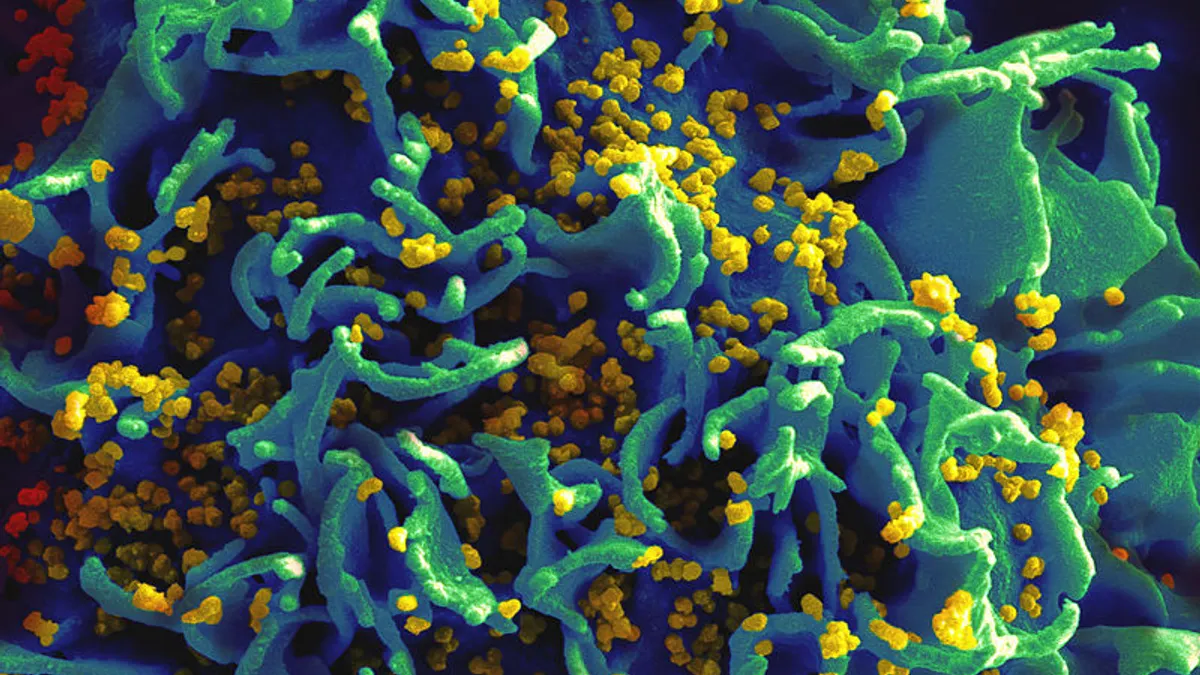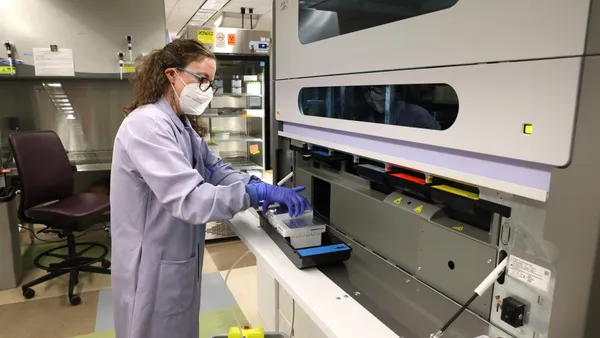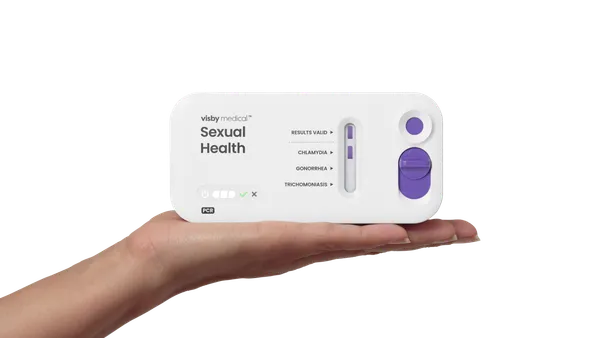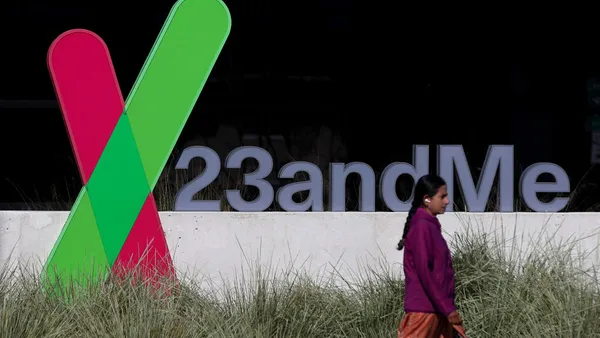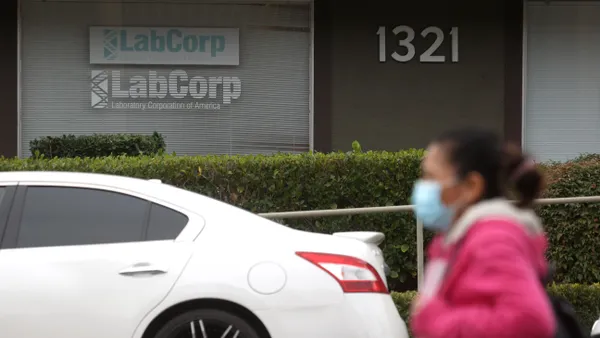Dive Brief:
-
FDA granted De Novo marketing authorization to Vela Diagnostics' test for detecting HIV Type-1 drug resistance mutations, the agency said Tuesday.
-
The authorization marks the first time FDA has cleared an assay for use in the U.S. that uses next-generation sequencing (NGS) to test for HIV drug-resistant mutations.
-
Equipped with the test, FDA said physicians can gather the information they need to tailor antiviral treatments to the genetics of individual patients.
Dive Insight:
Antiviral therapy has turned HIV into a managed chronic disease but the emergence of drug-resistant strains threatens to undermine progress made to date. Since the global rollout of antiretroviral therapy began in 2001, the prevalence of resistance has jumped from 11% to 29%. Double-digit rates of drug resistance are seen in pretreated patients in many countries.
Physicians currently gauge whether a patient is resistant to a treatment regimen by monitoring their viral load. If levels of the virus increase, the patient may have developed resistance to a medicine.
The assay authorized by FDA this week gives physicians a different way to assess resistance. The NGS test detects 342 HIV drug resistance mutations in blood samples. Physicians can use the information to choose combinations of medicines to which the virus remains susceptible.
"The ability to rationally select treatments for patients about to start or already taking antiviral therapy provides another tool in our ongoing fight against HIV," Peter Marks, director of FDA’s Center for Biologics Evaluation and Research, said in a statement. "The right combination of antivirals can lower viral loads, or the amount of virus in the blood stream, and help keep patients with HIV healthy for many years."
Fairfield, New Jersey-based Vela Diagnostics secured the FDA authorization on the strength of data showing the assay detects 342 drug resistance mutations with sensitivity and specificity in excess of 95%. The product label shows Vela also assessed the reproducibility of the test results by analyzing the same samples at different sites.
The data persuaded FDA to authorize the assay via its De Novo pathway and categorize it as a Class II device. FDA identified the inaccurate detection of mutations and incorrect interpretation of results as the main risks associated with the test. The agency said labeling information and validation procedures likely can mitigate these risks.
According to Vela, an earlier version of the product received a CE mark in 2017 and has since been approved by regulatory bodies in Australia, Singapore and Thailand. The company said the most recent version of the assay is currently being reviewed by regulators in Europe and Singapore.

